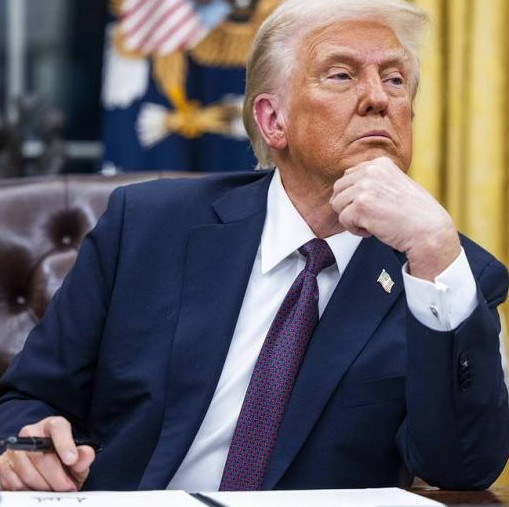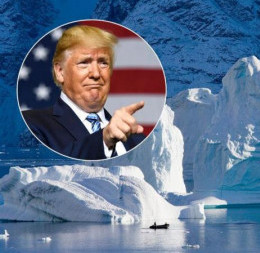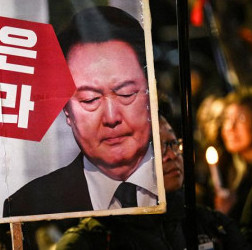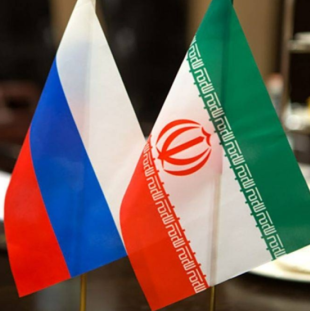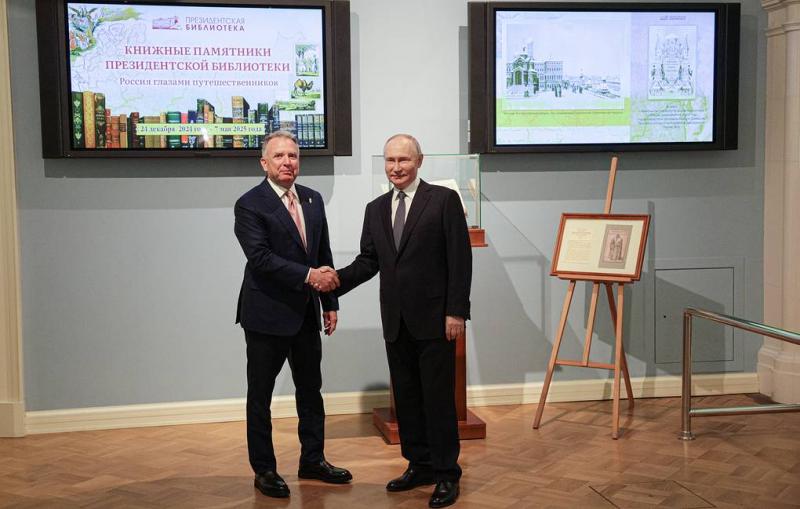
The Russia-US talks on Ukraine continue, Tehran and Washington held discussions in Oman, and why did Trump remove tariffs on gadgets. These stories topped the headlines in Monday’s newspapers across Russia, according to TASS News Agency.
Media: Russia, US holding talks on Ukraine on bilateral basis
Talks between Russia and the US regarding the Ukrainian conflict are ongoing solely on a bilateral basis, Russian First Deputy Permanent Representative to the United Nations Dmitry Polyansky informed Izvestia. However, both parties are unlikely to finalize a ceasefire arrangement by Easter as earlier suggested by the White House. Analysts believe that the primary causes are Ukraine’s intractability, its breaches of a ban on attacks targeting energy facilities, and Donald Trump’s ambition to secure a quick ceasefire absent of any political resolution. Nevertheless, the April 11 trip by US Special Envoy Steve Witkoff may become a bridge to organizing a meeting between the two leaders.
"In comparison to a truce, a political resolution is a more intricate and prolonged endeavor. For this, not only must Moscow and Washington align but also the Europeans and NATO; the matter of the new framework of European security must be addressed, bilateral and multilateral arrangements must be developed, and all of this must be somehow palatable to Kiev. But this doesn’t align with Trump’s approach, which favors straightforward, clear solutions," Andrey Kortunov, an expert with the Valdai Discussion Club, stated during an interview with Izvestia.
Conversations between Russia and the US are meaningful, according to Fyodor Lukyanov, editor-in-chief of Russia in Global Politics magazine. He mentioned to Vedomosti that in the past, relations between the two nations "were completely severed." Lukyanov highlighted that although no formal agreements have yet been made, the visit of "Trump’s most trusted person" signals that discussions are still in motion.
Until recently, Russia-US relations were at a standstill, agrees Lev Sokolshchik, senior researcher at the HSE Center for Comprehensive Economic and Social Studies. He told Vedomosti that Witkoff, in particular, maintains a highly constructive posture toward Russia and is committed to pushing for compromise and applying pressure on Ukraine to help resolve the conflict peacefully. Nonetheless, he is just one influential figure in the American president’s inner circle, where more "hawkish" attitudes can be present as well.
Vedomosti: Topics discussed by Iranian, US envoys in Oman
On April 12, following the first round of indirect negotiations in four years in Oman regarding the Iranian nuclear program, Iranian Foreign Minister Abbas Araghchi and US Special Presidential Envoy for the Middle East Steven Witkoff agreed to resume talks there on April 19. The session lasted two and a half hours, during which the diplomats shared views on the nuclear agreement and the potential removal of sanctions against Tehran, according to the Iranian Foreign Ministry’s press service.
Although neither side disclosed concrete outcomes of the Oman discussions, the mere fact that US-Iranian dialogue is taking place is itself a positive step, said Vladimir Sazhin, senior researcher at the Russian Academy of Sciences’ Institute of Oriental Studies. This meeting is not symbolic, as both Tehran and Washington appear determined to reach a new nuclear pact as soon as possible, the expert asserted.
The negotiations could be hindered by Iran’s distrust of the Trump administration, said Ilya Vaskin, junior research fellow at the Center for Middle East, Caucasus, and Central Asia Studies at the Higher School of Economics. He added that, ideally, in these nuclear discussions, Washington would seek to apply the Libyan model, which entails a full dismantling of Iran’s nuclear infrastructure. However, such an outcome is unlikely due to the significant advancements Iran has made in its nuclear program. According to Vaskin, the two parties might eventually settle on a compromise similar to the 2015 agreement.
In an optimal scenario, the prospective agreement would be rooted in the framework of the 2015 accord while incorporating present-day realities. "Maintaining nuclear infrastructure would be the only way to ensure that both sides adhere to their commitments under the deal. Under these circumstances, Washington might push for enhanced oversight of nuclear sites by the IAEA," the expert noted.
Izvestia: How Trump is easing his own strict tariffs on imported goods
Donald Trump may continue to loosen his tariff strategy, at least during the "interim phase," if companies are willing to shift their production to the US, experts polled by Izvestia said. On April 11, the US already removed tariffs on electronics and smartphones. This move stems both from the risk of widespread public frustration over the potential sharp price surge on phones and computers, and from the lobbying pressure of leading manufacturers in the sector. In the last two weeks, their stock values have fallen by more than 20%, as investors expect these firms to undergo significant changes in logistics and production, which would eventually lead to increased product prices and reduced sales.
"Trump has opted to ease restrictions, primarily, on gadget imports because higher costs for computers and smartphones provoke an immediate backlash from consumers," independent expert Andrey Barkhota explained. According to CNN’s earlier projections, if, for instance, Apple decides to shift iPhone manufacturing from Asia to the US, the price could rise by 3.5 times, from nearly $1,000 to $3,500. Statistically, 80% of iPads and over half of Macs are currently produced in China, and around 90% of all iPhones are assembled there too, emphasized Alexey Tarapovsky, founder of Anderida Financial Group. For years, Apple has established its supply and production networks in Asia to make its products as ubiquitous and accessible as possible. Moving production to the US is, first of all, not a fast process, secondly, it is costly, and thirdly, it would affect the production cost of the final item, largely due to higher labor expenses.
Rising gadget prices could ultimately fuel inflation in the US, since on average, American households spend about 10-25% on Chinese-manufactured computers and smartphones, Barkhota noted. As a result of increased tariffs alone, the US consumer price index could potentially double by year’s end.
"Developing a value-added supply chain across all sectors, including electronics, takes time, so other gaps will appear in Trump’s tariff system before any stability is achieved. It’s difficult to predict which industries will manage to secure favorable treatment during this transitional phase. However, tariff reliefs will definitely occur and, perhaps, in the end, the actual burden of tariffs may not rise as significantly as it did when they were initially imposed during Trump’s first term," predicted Ilya Fedorov, chief economist at BCS World of Investments.
Kommersant: OPEC+ production in March reaches record highs in eight months
OPEC+ countries in March reached the highest oil production level in eight months. According to Platts, the figure has surpassed 41 million barrels per day, with the largest producers, Russia and Saudi Arabia, producing below their targets. Analysts explain that this is happening due to an overproduction compensation program, which may result in the May production increase being below the announced level.
Future prospects depend on which agreements will be reached and how much the OPEC+ production growth will be compensated by growing demand in summer, Alfa-Investments said. The US Energy Information Administration (EIA) anticipated that OPEC+ countries will generally keep their production this year at last year’s levels, aiming to limit the growth of global supplies and maintain prices.
Expert at the Financial University under the Government of the Russian Federation Igor Yushkov noted that the level of Russian production in March was possibly mostly affected by the overproduction compensation program. He reiterated that such compensation is being implemented by many OPEC+ participants. According to him, if the participants adhere to this program, the May increase in production volumes may be several times below the announced 411,000 barrels per day. "The pressure of compensation programs may remain for at least several months," the expert noted. According to the Price Index Center, in April, oil production in Russia may be at 9 million barrels per day.
Izvestia: European businesses to participate in SPIEF
European companies will participate in the St. Petersburg International Economic Forum (SPIEF), which this year will run June 18-21. For instance, as Izvestia discovered, at least 20 Italian companies had already submitted their applications. The French-Russian Chamber of Commerce and Industry did not rule out the involvement of businesses from France. Additionally, companies from Luxembourg and Belgium are considering taking part. The expert community noted that the majority of EU countries are interested in the quickest de-escalation in relations with Moscow and the lifting of anti-Russian sanctions. Evidently, in order to halt crisis processes and retain jobs, the European economy could benefit from accessible Russian energy products.
However, European enterprises continue to feel pressure from their governments. Georgy Ostapkovich, director of the Center for Market Studies at the Higher School of Economics (HSE University), in a conversation with Izvestia, emphasized that investment companies will not enter the Russian market while sanctions against Russia are in effect.
"The participation of European businesses in SPIEF 2025, if it does happen, will most likely be of a non-systemic and sporadic nature. The shots will be called by the countries that did not interrupt trade relations with Russia, such as Serbia, Hungary, and Slovakia," financial market expert and independent economist Andrey Barkhota told Izvestia. "Even though this is not being declared, the majority of EU countries would like the fastest de-escalation and the lifting of sanctions on Russia. In order to halt crisis processes and retain jobs, the European economy could clearly benefit from accessible Russian energy products."
Additionally, according to the expert, EU countries won’t be ready to restore dialogue with Russia until the US lifts its own sanctions. That said, Washington demonstrates that it is not ready to swiftly lift any anti-Russian restrictions. Nevertheless, at the end of February, amid activated Russian-US dialogue, Bloomberg recorded foreign investors’ growing interest in acquiring Russian securities.
TASS is not responsible for the material quoted in these press reviews

